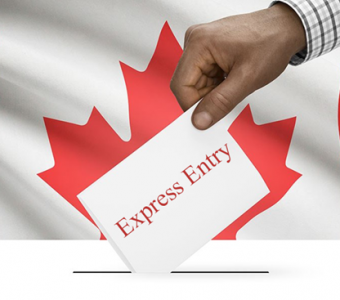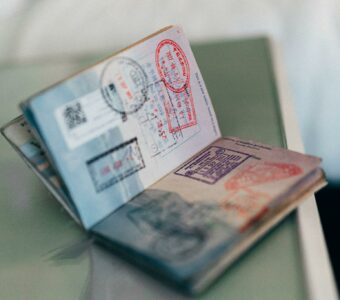
Author: Yan Desjardins, Founder and Executive Director
Strong family values are shared amongst Canadian society. Keeping families together is essential, and that is why Canada has put in place many family sponsorship programs to help individuals immigrate to Canada as a whole family or immigrate to Canada as a couple.
We often get asked about the sponsorship procedures or the documents needed to sponsor a husband or wife to Canada. So for that reason, today, we want to help you better understand the spouse and partner immigration process.
First, let’s go over the definition of what it means to be a spouse or a partner and how you can immigrate to Canada as a couple.
Members of the family class: What does it mean?
You may often hear the term ‘family class’ during the sponsorship process. The Canadian immigration law has defined a broad category called the ‘family class’ that includes different family members that can be sponsored, including spouses and partners.
So, if you meet the legal definition of a spouse or partner, you become eligible to apply for a permanent resident visa immigrate to Canada as a couple. To belong in the family class, you must meet the eligibility requirements of 1 of 3 different unions that are recognized in Canada.
- Spouses – you are legally married
- Common-law partners – you have officially lived together for at least 12 months
- Conjugal partner – you are unable to reunite with your partner due to circumstances out of control to marry or live together.
These 3 types of unions provide flexibility for people to immigrate to Canada as a couple. Let’s take a closer look at each of them.
Spouses
This category is the most straightforward as it requires the two of you to be married. Your marriage certificate must be legal and recognized both in Canada and in the country where it took place.
So you might wonder: How can my marriage be not permitted in my country?
Good question! For example, if you marry someone while you are still married and not divorced, then your marriage is not legal in the country where it took place. Therefore, Canada won’t recognize the union either, and you will not meet the definition of a family member to immigrate to Canada as a couple.
You will also need to demonstrate that you have engaged in the marriage in good faith and not solely for immigration purposes. These unions are called ‘marriage of convenience and can have damaging consequences.
You will need the following documents to sponsor your husband or wife to Canada. A certified translation must accompany any documents not written in English or French.
- Both of your passports
- Your marriage certificate
- Civil Register
- Any divorce documents if you were previously married
- Birth certificates for you and your children.
These are the primary documents you should gather to prepare your application. We will review the additional requirements further down below.
Common-law partners

Many people choose not to marry in Canada and prefer to live together; the same as a married couple. The government, therefore, recognizes that these unions be granted the same rights under Canadian law as a married couple.
In immigration, the same definition is used. You must have lived together for at least 12 months continuously to be eligible.
You will need to provide the same documents to sponsor your husband or wife to Canada, except for the marriage certificate.
You will need to provide proof of cohabitation in the form of a lease, a contract to rent or any other document that can act as official proof of cohabitation for the required time.
Expert tip: It is always best to have both names on the documents to establish who the residents are at the address.
Conjugal partners

If you and your partner are physically separated for reasons out of your control, and you cannot reunite together to either get married or live together, then you may qualify as a conjugal partner.
Most often, physical separation and the inability to reunite would be caused by civil wars, refugee displacements, gender/religion/sexual orientation persecution and so on. Often, members of the LGBTQ+ can meet this definition if they cannot live together without risking their lives. The conjugal partner category is vague and not clearly defined in Canadian immigration law.
Just like the common-law category, you will need to provide the same documents to sponsor your husband or wife to Canada, except for the marriage certificate. You will need to provide proof of relationship and documents supporting your inability to reunite.
If you think you belong in the conjugal partner category, we highly recommend using a reputable Canadian immigration consultant to help you. Contact us today, and we can accompany you every step of the way.
I am part of the LGBTQ+ community. Can I meet the definition of the family class?

The answer is yes! Canada legalized same-sex marriage in July of 2005. Since then, couples can get married and benefit from all the same rights as a married couple. If you are in a committed same-sex relationship, you can still meet the definition of all 3 categories and immigrate to Canada as a couple.
If you and your spouse are married, you can apply under the spouse category. However, the same requirements apply: your marriage must be recognized in the country where it took place.
This means that the host country of your marriage must recognize the legality of same-sex unions. You will have to provide the same required documents to sponsor a husband or wife to Canada as you meet the same definition.
LGBTQ+ couples often have more success under the common-law partner category. If you have lived in a committed relationship under the same roof for more than 12 months, then you meet the definition and can apply to immigrate to Canada as a couple.
Refer to the section above if you think you qualify under the conjugal partner. Again, we recommend using a reputable Canadian immigration consultant to help you.
What are the additional requirements?
You will be asked to provide many documents to support your application. The most commonly asked for is proof of relationships. On top of the supporting documents, you will be asked to undergo two types of examination.
Criminal record verification
You will be asked to provide a police certificate issued by a national authorized entity for your sponsorship application. The certificate ensures that you do not have a criminal history that could make you inadmissible to Canada.
If you have lived overseas in the last 10 years or since the age of 18, whichever comes first, and you have lived there for more than 6 months, then you will need to provide a police certificate for that country as well.
Biometrics
During the sponsorship process, you will be asked to provide biometrics information such as your fingerprints and a digital photo. This information is used for immigration and criminal background verifications in Canada. If you have previously provided biometrics within the last 10 years, you will not have to complete this again.
Medical Examination
The person being sponsored will have to undergo a medical examination. You will be directed to a Government of Canada-approved medical practitioner to complete the examination. Your family doctor cannot complete this for you.
This examination will screen for transmissible diseases and other health threats to Canadians. If you have a medical condition, you may still immigrate to Canada. A reputable Canadian immigration consultant can help you ensure you meet the threshold. Contact us today.
How long does the process take?
The government of Canada has made family reunification part of the government priority mandate. For straightforward applications with no criminal backgrounds or health issues, the processing time can take up to 12 months.
Often, the process can be faster, but these processing times are not guaranteed. They can vary depending on the volume of applications received and other factors.
Why choose us?
Because we understand the importance of family. Combined with our unprecedented experience, we can help you ignite your dreams of reuniting together. Also, being Canadian and living overseas, I understand the importance of preparing for a new life in a different country.
Take our self-assessment test today, and let us accompany you at every step of the way.




















